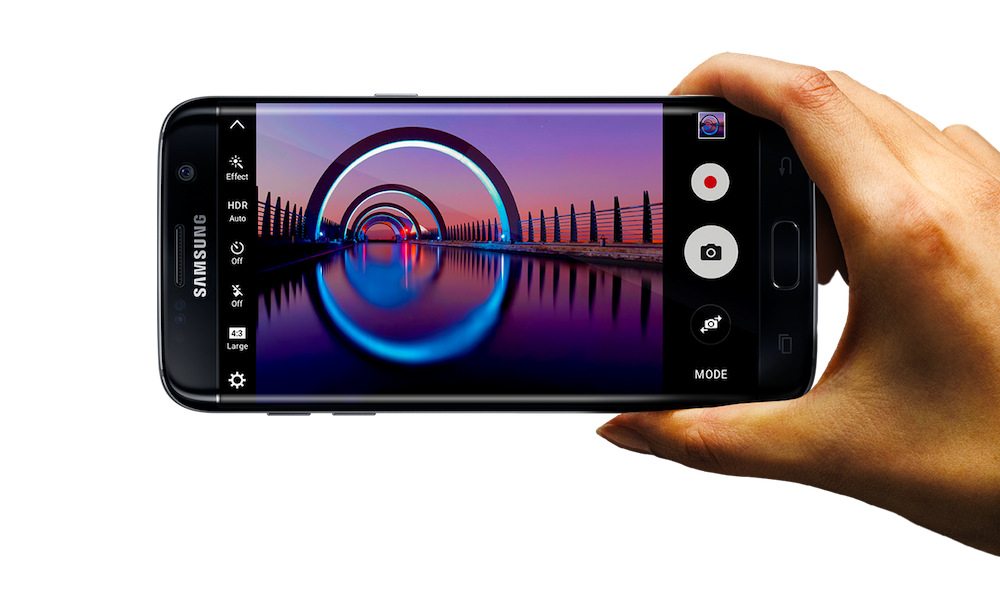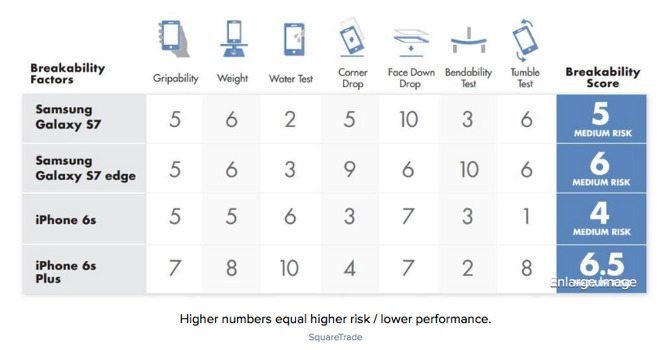Despite Marketing Hype, New Reports Confirm Samsung’s Galaxy S7 Is NOT Waterproofed

Toggle Dark Mode
A waterproofed iPhone is something many expectant users have been anticipating for a while now and while recent rumors have suggested that Apple’s 2016 flagship might feature the highly sought after certification, a surprising bit of independent analysis suggests that perhaps Apple is best holding its horses in the gate for another year — so as to work out any possible kinks that its chief rival, Samsung, clearly failed to consider before releasing its high-end Galaxy S7 earlier this year.
As you may or may not know, Samsung’s creme de la creme S7 handset is advertised as boasting IP68 certification — which, in other words, essentially implies that the device is capable of withstanding extended liquid submersion at up to a 5-foot depth of water, for up to 30 minutes.
However, according to recent tests conducted by independent market research firm, Consumer Reports, Sammy’s top-tier (and most expensive) S7 Active — a device which is ostensibly more ruggedized than its “equally certified” brothers — failed miserably when put to the classic water submersion test.
As a matter of fact, according to Consumer Reports director of electronics testing, Maria Rerecich, Samsung’s Galaxy S7 Active (despite retailing for about $100 more than the standard S7) failed the water test not only once, but twice. She noted that her firm purchased two of the handsets in order to repeat the test — given that she was so surprised the device had initially failed.
Rerecich noted, in particular, that, after submerging the device in a shallow bowl of water, “its screen flashed green and other colors and didn’t respond to touch.”
She also noted that the apparent leakage appeared to result from “fit and finish inconsistencies,” and that “tiny bubbles appeared on the camera lenses.”
Ironically enough (or maybe not?), similar tests conducted by other independent entities — such as Square Trade — also pointed out the apparent inconsistencies in Samsung’s “waterproof certification” claims. In particular, Samsung touts that its other, non-ruggedized Galaxy S7 devices boast IP67 certification — which means they’re capable of resisting 1-meter (3.28 feet) of water for up to 30 minutes.
However, the South Korean Galaxy-manufacturer’s marketing campaigns — facilitated by some of its wireless carrier partners (such as Verizon) — claim that those devices are actually IP68 certified — when, if fact, they are not. And, believe it or not, IP68 certification is actually much more formidable than IP67.
As CNET best puts it, the difference between IP67 and IP68 certification, is essentially the difference between “protection against temporary immersion” and “protection against longer periods of immersion.”
What About Apple’s ‘iPhone 7’?

While Apple’s 2015 flagships boast no waterproof certification of their own, as you can see, they actually performed at least competitively with similar devices in their class. This is due, in part, to the fact that Apple has added several features to recent iPhones in an apparent attempt to boost their water resistance — even despite the fact that the Cupertino-company has yet to release a fully-fledged IPXX certified device.
For instance, Apple’s iPhone 6s models both feature the incorporation of new “silicon seals” — which work to stave off splashes of water — but not full water submersion.
Also, Apple’s Watch actually boasts an IPX7 “water intrusion” certification, which, as the company states, renders the Watch “splash and water resistant, but not waterproof.”
It should also be noted that, even despite only few rumors surfacing in recent months, Apple is believed to be working on some sort of waterproofing (or at least water resistance) for its upcoming ‘iPhone 7’ handset. However, we’ll take those rumors with a grain of salt until further notice.
Do you think the ‘iPhone 7’ will boast waterproof certification? Let us know in the comments!






